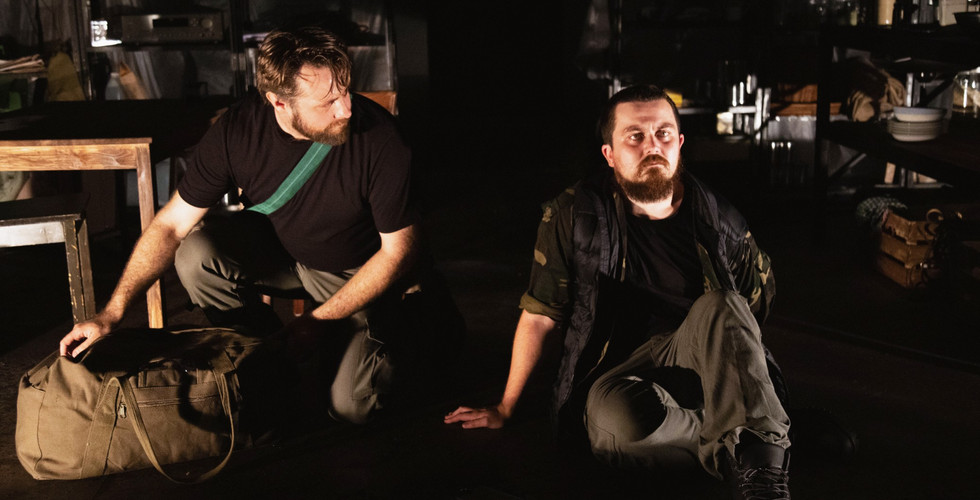Review: Ditch at Limelight on Oxford
- Apr 7, 2019
- 2 min read
By Michael Kaufmann
Dystopian narratives are not a rare thing in today’s culture. For a long time they have reflected the disenfranchised members of our communities. From George Orwell’s 1984 to Alfonso Cuaron’s Children of Men, depictions of a fallen society (commonly Britain) are part of universal popular culture. Beth Steel’s harrowing play Ditch, presented in an effective and gut-wrenching Australian premiere by Dream Plane Productions at Limelight on Oxford, falls squarely within this pantheon. I mention those two examples in particular, because they (along with many other pieces of literature) echo throughout the play’s tight hour and forty minute runtime.
Limelight on Oxford is an interesting space.. Between having to walk through the set to get in and sitting so close to the action, it feels as if the audience is in the room as the action unfolds. Director Kim Hardwick has utilized this, along with Victor Kalka’s cleverly realistic designs to achieve believable staging that brings out the fraught realism of Steel’s text. Edward Hampton’s incidental music is effective in setting an atmosphere (if slightly redundant), and Steph Kelly’s sound designs are sleek and fitting.
The cast is incredibly strong. Each member carries their part powerfully to the very end. The stand outs here though are both Fiona Press and Jasmin Simmons, presenting the female experience of this dystopia (and thusly carrying are heavier burden of thematic content than their male counterparts); and Angus Evans, who’s performance shifts so brilliantly from brutish oaf to a man scarred by war (both mentally and physically).
The play itself, however, is the real star here. The text presents the growing tensions between opposing sides; between old and young, male and female, military and civilian, hopeful and cynical, patriotic and disenfranchised, and so on. These conflicts form the day-to-day interactions between the inhabitants of the outpost, and as the known society continues to crumble around them, the tensions mount steadily. These are made even more potent by the contrasting moments of levity and genuinely touching humanity. These moments give the audience a break from the play’s caustic wit, evoking hope and empathy that is all too painfully snatched away in the final moments. Refreshingly, the play doesn’t try explaining how society fell, focusing instead on how these people have been pushed together and how that plays out. It’s unflinching, harrowing, and ends appropriately painfully.
Unfortunately, that ending brings one qualm with the production. Without saying too much, it’s slightly over-produced. To put it plainly, we didn’t need stark red lighting and blood packs, especially given that under a red light, fake blood doesn’t show very clearly.
There is a blurb in the program that comments on relevant international events that have transpired since the plays inception. This is an appropriate preamble that gives the play an updated relevance that will maintain its grip on you as you leave the theatre, and I don’t think it’s going to let go soon.
Photo Credit: Becky Matthews
All opinions and thoughts expressed within reviews on Theatre Travels are those of the writer and not of the company at large.












































